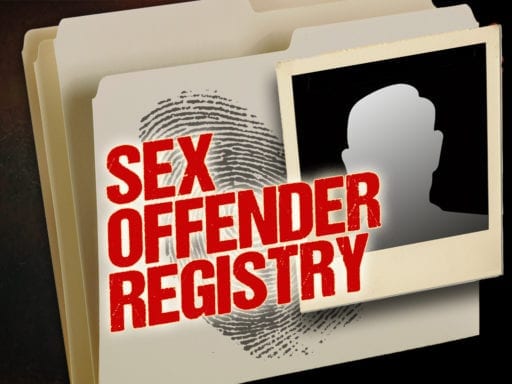
While some believe sex offender registration is the “scarlet letter” of our time, changes are set to come to perhaps the harshest law in the country. California Penal Code Section 290 currently requires all offenders convicted of sex crimes to register as a sex offender for the rest of their life. This requirement applies to even to low level misdemeanor offenses where many convicts never spend a day in jail, yet have a lifetime requirement to register publicly. People convicted of these minor offenses are listed alongside the most serious and dangerous sex offenders in California. Senate Bill 421, however, takes aim at the law.
In sum, the law looks not to abolish sex offender registration, but rather amend its affect such that dangerous offenders are highlighted, and minor offenders do not have a lifetime brand. For those convicted of misdemeanor sex offenses, the new law would call for a 10-year registration period. For higher level strike felony offenses, the registration period would be for 20 years; and for multiple offenders and sexually violent predators, the registration period would remain a lifetime requirement.
At our office we are tracking this bill. It’s passage will create a storm of petitions to amend registration requirements and will change the landscape of sex crimes in California in the future and retroactively. For a free consultation on how this affect you, and how you can be ready to petition to be taken off the sex offender registration list in California, call our office today. We are preparing petitions so they can be filed the day the new law takes effect.
Current Law For Sex Offender Registration
Currently, sex offender registration in California can be ordered as a mandatory statutory requirement of your conviction, or alternatively it can be ordered in the discretion of the court. Mandatory sex registration offenses are listed in Penal Code Section 290(c). This offenses are all lifetime registration requirements. Pursuant to the new law, registration would still be mandatory but the term for which registration would change. Regardless, these mandatory registration offenses include:
- A murder, kidnapping or assault committed with the intent to commit specified sex offense.
- Sexual Battery, a violation of California Penal Code Section 243.4
- Rape, a violation of California Penal Code Section 261 or 262
- Aiding and abetting a rape, a violation of California Penal Code Section 264.1
- Pimping or pandering a minor, a violation of California Penal Code Section 266
- Child Procurement, a violation of California Penal Code Section 266j
- Aggravated sexual assault of a child under 14 years of age, a violation of California Penal Code Section 269
- Contributing to the delinquency of a minor with lewd or lascivious conduct, a violation of California Penal Code Section 272
- Incest, a violation of California Penal Code Section 285
- Sodomy, a violation of California Penal Code Section 286
- Lewd or lascivious act with a minor, a violation of California Penal Code Section 288
- Oral Copulation, a violation of California Penal Code Section 288a
- Showing obscene material to minors, a violation of California Penal Code Section 288.2
- Contacting a minor with the intent to commit certain felonies, a violation of California Penal Code Section 288.3
- Arranging a meeting with a minor for lewd purposes, a violation of California Penal Code Section 288.4
- Continuous sexual abuse of a minor, a violation of California Penal Code Section 288.5
- Engaging in sodomy with a child 10 years or younger, a violation of California Penal Code Section 288.7
- Sexual penetration by force or fear, a violation of California Penal Code Section 289
- Child pornography crimes, a violation of California Penal Code Sections 311.1 through 311.11
- Indecent exposure, a violation of California Penal Code Section 314
- Annoying or molesting a child, a violation of California Penal Code Section 647.6
- Solicitation to commit a sex crime, a violation of California Penal Code Section 653f(c)
For every single one of the above offenses, the registration period will change for the new law. In essence, if you are convicted of any of the above crimes as misdemeanors, the registration period will be for 10 years instead of life, and if it is a felony, the registration period will likely be for 20 years. You are only in jeopardy of having lifetime registration if this is your second offense or you fit a very unique category of being labeled a sexually violent predator.
The good news for people currently registering for life is the new law would get them an avenue to petition out of their registration requirement. Contact us today to get your petition started so that we can file it the day this new law goes into effect.
How Sex Registration Works
If you are required to register as a sex offender, California requires you to register every year within 5 days of your birthday. Additionally, when you move, you must re-register within 5 days.
“If I am a convicted sex offender and move to a different state, do I have to register there?” The short answer is yes, you must abide by the rules of that state. Other states, however, have much less stringent registration requirements. With the current state of the law, this has led many people to flee California’s strict laws in hopes of reliving the requirement to register.
Local Ordinances Can Expand Your Registration Requirements
One of the main component’s of sex registration law is known as “Jessica’s Law” which prohibits registered sex offenders from living within 2000 feet of a school or children’s park. Cities have expanded on this law to add their own further requirements, banning sex offenders from beaches and piers, day car centers, and schools. If you are required to register, you should be versed in your local ordinances and if you violate them you could land yourself back in jail.
Pat Carey Can Help You Avoid Registration
Whether you are currently registering as a sex offender or being charged with a sex registration offense, Pat Carey is a certified criminal law specialist and can help you avoid this requirement. Further, Pat Carey is an expert on the new law and will be filing many petitions for his current and former clients to get them off the sex registry. Contact us today for a free consultation to see how we can help.

